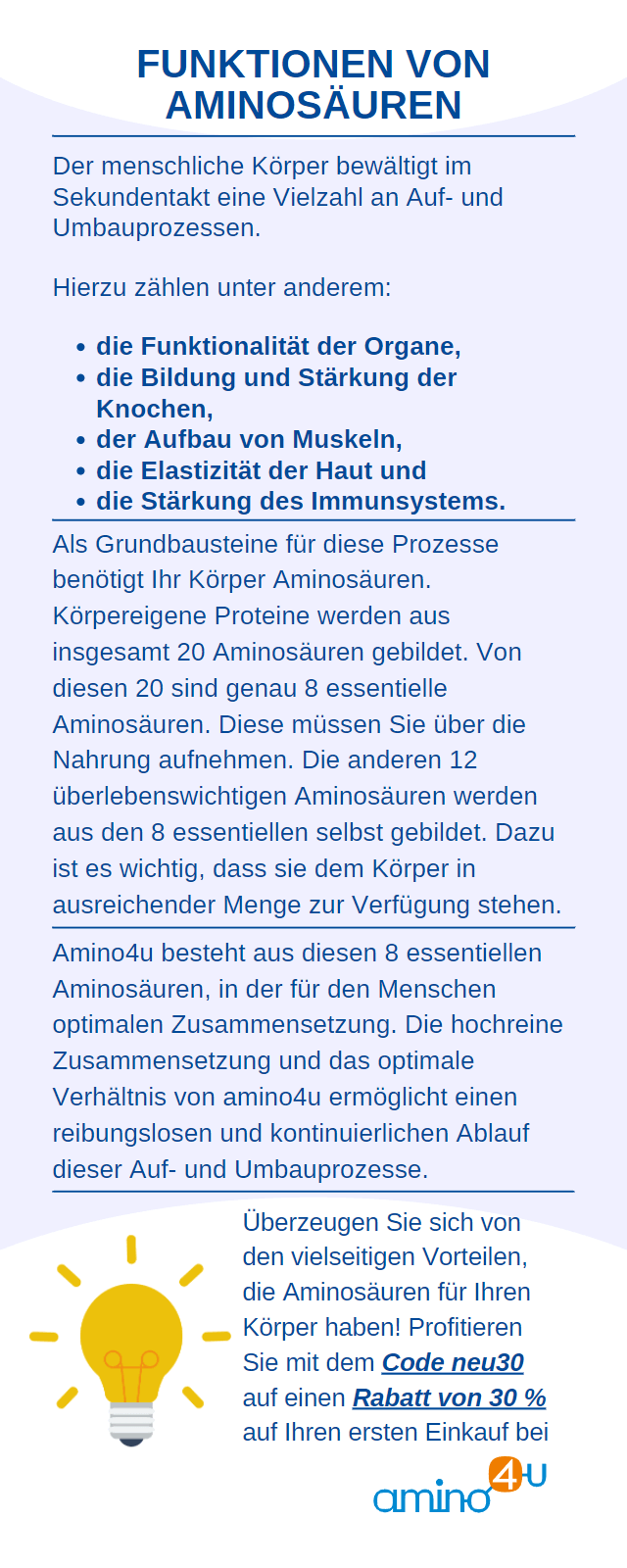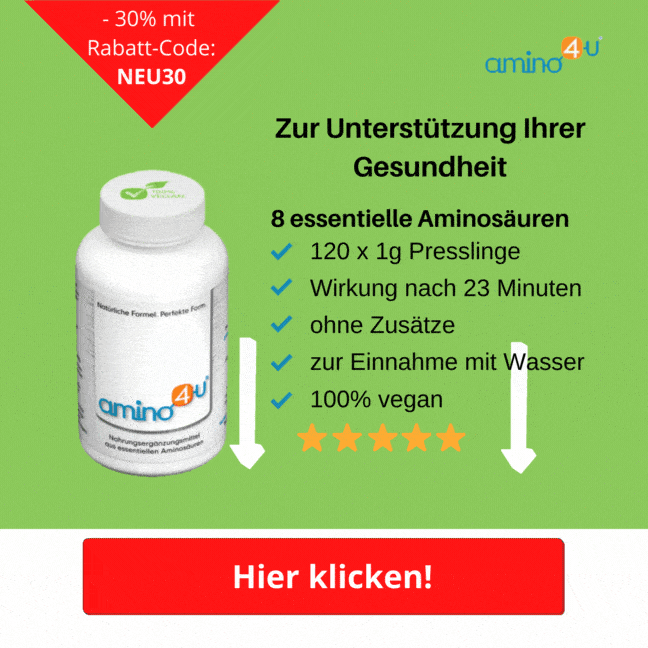For a healthy, toned body, nutrition is at least as important as training. In the article we will tell you which foods promote rapid regeneration and muscle building after exercise.
Fitness-conscious people have known it for a long time: hard training alone is not enough to get the body of your dreams. The decisive factor for maximum training success is what comes on the table afterwards. If the diet is right, targeted fat loss and rapid muscle building will also work.
Vegetables or proteins: which food does the body need after exercise?
Regardless of whether you choose endurance sports, intensive strength training or outdoor activities, after the workout your body needs nutrients and vital substances from food in order to regenerate itself, repair muscle tears and replenish its energy reserves.
So not eating is counterproductive to losing weight or building muscle . The best way to support your body is with a combination of healthy carbohydrates and protein.
1. Proteins and amino acids for muscle building
Protein-rich foods in the form of shakes or other muscle building products are the classic post-workout snack.
After training, the body needs protein to repair the muscle damage caused. Push-ups, muscle building and amino acids proteins simply belong together.
When should you eat after exercise?
A protein-rich meal after strength training promotes rapid muscle building . It used to be recommended that protein be consumed within the “ anabolic window .” The time frame was calculated to be around 30 minutes.
However, recent research suggests that this window is much larger. The proteins and carbohydrates can be used effectively two to three hours after training - without the body breaking down muscles.
The afterburn effect ensures that you continue to burn calories at an increased rate after training. Therefore, after training , give your body a short cool-down phase before you eat anything .
This ensures that your digestive system is ready to utilize food efficiently. The German Society for Nutrition (DGE) recommends an amount of 1.2 to 1.8 grams per kilogram of body weight for an adult for strength athletes with the aim of building muscles or defining muscles .
Proteins ensure that the body is supplied with important amino acids . These support muscle building , cell regeneration and prevent energy from being obtained from the muscle cells and the breakdown of valuable muscle tissue.
2. Carbohydrates fill empty energy reserves
To generate energy during exercise , the body draws on glycogen stores. These should definitely be refilled quickly afterwards. If they are empty, your body gets the energy it needs from the muscle cells.
This means that all the hard work in the gym would be completely in vain. Carbohydrates are best suited to replenish glycogen stores.
If you are on a diet and want to lose fat, it is best to use natural carbohydrate sources with a low glycemic index such as whole grains, apples or carrots. These only cause the insulin level to rise slowly and therefore keep you full for longer.
These foods also prevent cravings. If you are in the middle of building muscle , you can also use high-calorie carbohydrate sources with a high glycemic index.
These include dates, bananas, potatoes and rice. The high sugar content of these foods causes a high insulin release. This makes it easier for the cells to absorb glucose.
In addition, the release of the hormone insulin creates an anabolic effect that supports the regeneration of muscle cells and protein synthesis. This can specifically prevent muscle loss.
3. Fats make protein absorption easier
High-fat foods are frowned upon in sports nutrition because they tend to be higher in calories and slow down digestion. While this is absolutely true, a healthy, balanced diet also includes fat .
So even if you want to lose weight, don't completely avoid high-fat foods. Fat is a valuable source of energy. However, make sure you consume a relatively small amount immediately after exercise to prevent digestive problems.
Also note: Not all fat is the same. Healthy fat can be found in nuts and avocados, for example. These unsaturated fatty acids are much easier to digest and generally much healthier than their saturated counterparts. Fats make it easier for the body to absorb protein and should therefore not be missing from your post-workout snack.

Recommended food after exercise
After training, you should particularly focus on easily digestible foods . The body can metabolize these quickly and the nutrients reach the stressed muscle cells directly. Here they specifically support regeneration and ensure optimal training success.
Examples of suitable carbohydrates include:
- sweet potatoes
- Quinoa
- oatmeal
- rice
- Fruit
Protein-rich foods are:
- Eggs
- cottage cheese
- Greek yogurt
- fish or meat
But vegan protein-rich products such as lentils and other legumes are also possible. Easily digestible, healthy fats include: E.g. nuts, nut butter or avocados.
In addition to the macronutrients already mentioned, the body also needs to replenish its micronutrient depots for optimal regeneration and performance. Vitamins, minerals and vital substances play just as important a role in the performance level as the training itself.
It is therefore important to eat foods that contain lots of healthy nutrients after physical activity.
Your body needs these vital substances after your workout
- Antioxidants strengthen the immune system
Antioxidants such as vitamins A, C and E strengthen the immune system, support the regeneration of bones, tendons and ligaments and protect the body from free radicals. Therefore, eat more green leafy vegetables, citrus fruits, blueberries and nuts after exercise.
- After sweaty training, potassium and sodium
Potassium and sodium help regulate water balance in the body. There is a risk of a deficiency of important salts, especially after intensive sports sessions. Refill your stores with the following foods: kohlrabi, pumpkin, salty foods, legumes and kale.
- Vitamin B6 for rapid muscle building
Vitamin B6 is found, for example, in Brussels sprouts, avocados, legumes and beef. It supports the body in protein synthesis and promotes fat metabolism. This makes it the best friend for anyone who wants to lose weight and gain muscle .
- Magnesium for cramps and sore muscles
Magnesium plays a crucial role in protein metabolism. The mineral also prevents muscle cramps and premature muscle fatigue. Bananas, potatoes and whole grains in particular help to adequately support muscle and nerve cells .
- Zinc for more performance in training
In the body, zinc ensures a strong immune system and good defenses. During your workout, a good supply of zinc helps you to be more efficient and have more energy.
- Calcium for strong bones
Calcium not only strengthens bones, it also regulates muscle contractions and prevents muscle cramps. Natural sources of dietary calcium include milk and dairy products, nuts, almonds, and kale .

You should definitely avoid these foods after exercise
There are foods with which you can specifically increase your regeneration and performance . On the other hand, there are also foods that have exactly the opposite effect and can quickly destroy your hard-earned successes. You should therefore definitely avoid these sports nutrition no-gos .
No-Go #1: Sugar after training
The energy and sugar reserves are empty after a strenuous workout. Best time to binge on chocolate and sweets guilt-free, right? Incorrect! Foods rich in sugar cause blood sugar levels to rise quickly and rapidly.
But just as quickly it collapses again. The next craving is inevitable. It is better to opt for foods with a low glycemic index.
With these foods you prevent your blood sugar levels from going on a rollercoaster and you feeling weak and tired again after a short time. So choose healthy fruit to satisfy your craving for something sweet!
No-Go #2: Alcohol after training
Working out and drinking definitely don't go hand in hand. Because nothing destroys hard-earned training successes as quickly as alcohol after training. Drinks containing alcohol are not only extremely high in calories, but also inhibit fat loss.
While the body is busy breaking down the alcohol, fat metabolism is significantly reduced. In addition, cocktails, wine, etc. slow down muscle growth .
They also remove water from the body, which further weakens the muscle-building processes. Therefore: stay away from alcohol if you don't want to ruin your success straight away!
No-Go #3: Post-workout diet products
Light and diet products advertise with the promise of a defined body but have exactly the opposite effect. These products have absolutely nothing to do with sports nutrition .
Food manufacturers often compensate for the reduced fat content with an increased sugar content. It's worth taking a closer look at the list of ingredients.
No-Go #4: Fasting after exercise
To lose weight with strength training , you should burn more calories than you take in. Because the diet only works with a negative calorie balance. However, the strategy of starving yourself after physical activity is not a good one!
In the worst case, fasting can lead to the loss of muscle mass . A body with more muscles has a higher basal metabolic rate. So if you lose valuable muscle, you still have to eat less to achieve a negative energy balance.
A much more sustainable method is to specifically build mass and thus increase your daily calorie consumption. A muscular body also appears tighter and slimmer.
That's why you promote the growth of your muscles after muscle training with a healthy, protein-containing post-workout snack instead of starving!

Make sure you drink enough fluids!
Drinking is at least as important as eating after exercise . During training, the body loses a lot of fluid through increased sweating. Even mild dehydration can lead to a significant drop in performance.
Therefore, make sure you drink enough fluids during your workout. The best options for this are still water, low-sugar isotonic sports drinks and unsweetened teas .
Water is also needed after sporting activities in order to transport the urgently needed nutrients and vital substances into the muscle cells.
Take time to rest and regenerate after exercise!
Discipline and perseverance are important in order to quickly achieve visible success in endurance sports and strength training . Be sure to take breaks between training sessions.
Regeneration and rest phases also contribute significantly to achieving sporting goals. Because it is these phases in which the muscle grows. Rest and sleep promote muscle building , regeneration and general performance.
So make sure that your body gets the rest it needs and that is good for it. If you want to get the most out of your workout, follow our tips and tricks for eating after exercise .
You will see that the sweaty training pays off, the sports clothes fit as they should again and you will quickly see results.

